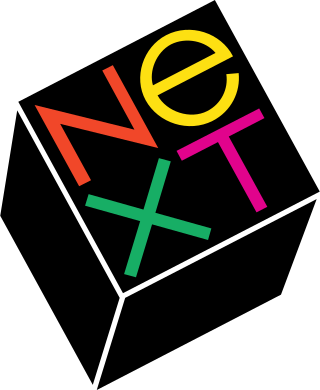
OpenStep is an object-oriented application programming interface (API) specification developed by NeXT. It provides a framework for building graphical user interfaces (GUIs) and developing software applications. OpenStep was designed to be platform-independent, allowing developers to write code that could run on multiple operating systems, including NeXTSTEP, Windows NT, and various Unix-based systems. It has influenced the development of other GUI frameworks, such as Cocoa for macOS, and GNUstep.
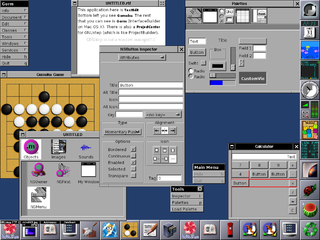
GNUstep is a free software implementation of the Cocoa Objective-C frameworks, widget toolkit, and application development tools for Unix-like operating systems and Microsoft Windows. It is part of the GNU Project.
In computing, cross-platform software is computer software that is designed to work in several computing platforms. Some cross-platform software requires a separate build for each platform, but some can be directly run on any platform without special preparation, being written in an interpreted language or compiled to portable bytecode for which the interpreters or run-time packages are common or standard components of all supported platforms.
A computing platform, digital platform, or software platform is the infrastructure on which software is executed. While the individual components of a computing platform may be obfuscated under layers of abstraction, the summation of the required components comprise the computing platform.
The Netscape Portable Runtime, or NSPR, is a cross-platform abstraction layer library for the C programming language. It provides a uniform API for various operating system functions.

GLib is a bundle of three low-level system libraries written in C and developed mainly by GNOME. GLib's code was separated from GTK, so it can be used by software other than GNOME and has been developed in parallel ever since.
A user interface markup language is a markup language that renders and describes graphical user interfaces and controls. Many of these markup languages are dialects of XML and are dependent upon a pre-existing scripting language engine, usually a JavaScript engine, for rendering of controls and extra scriptability.
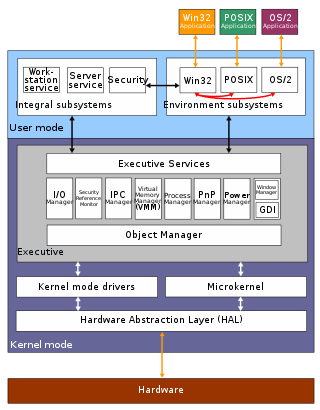
The architecture of Windows NT, a line of operating systems produced and sold by Microsoft, is a layered design that consists of two main components, user mode and kernel mode. It is a preemptive, reentrant multitasking operating system, which has been designed to work with uniprocessor and symmetrical multiprocessor (SMP)-based computers. To process input/output (I/O) requests, it uses packet-driven I/O, which utilizes I/O request packets (IRPs) and asynchronous I/O. Starting with Windows XP, Microsoft began making 64-bit versions of Windows available; before this, there were only 32-bit versions of these operating systems.
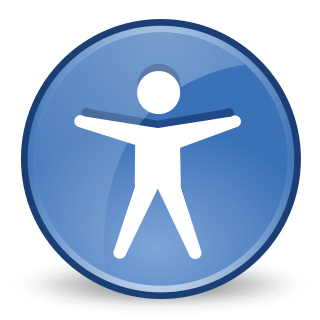
Accessibility Toolkit (ATK) is an open source software library, part of the GNOME project, which provides application programming interfaces (APIs) for implementing accessibility support in software.

A crash reporter is usually a system software whose function is to identify reporting crash details and to alert when there are crashes, in production or on development / testing environments. Crash reports often include data such as stack traces, type of crash, trends and version of software. These reports help software developers- Web, SAAS, mobile apps and more, to diagnose and fix the underlying problem causing the crashes. Crash reports may contain sensitive information such as passwords, email addresses, and contact information, and so have become objects of interest for researchers in the field of computer security.
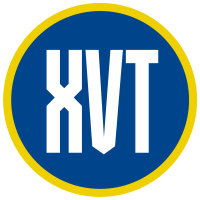
XVT is a software development environment for building cross-platform GUI applications in C or C++. XVT allows developers to graphically lay out an application's GUI, and provides cross-platform libraries to aid development.
In distributed programming, a portable object is an object which can be accessed through a normal method call while possibly residing in memory on another computer. It is portable in the sense that it moves from machine to machine, irrespective of operating system or computer architecture. This mobility is the end goal of many remote procedure call systems.
HAL is a software subsystem for UNIX-like operating systems providing hardware abstraction.
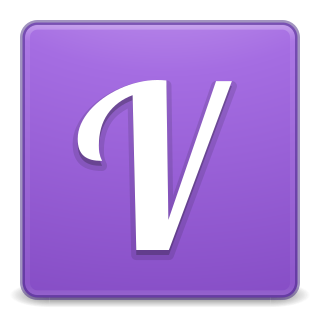
Vala is an object-oriented programming language with a self-hosting compiler that generates C code and uses the GObject system.

Mono is a free and open-source software framework that aims to run software made for the .NET Framework on Linux and other OSes. Originally by Ximian which was acquired by Novell, it was later developed by Xamarin which was acquired by Microsoft. In August 2024, Microsoft transferred ownership of Mono to WineHQ.

mpv is free and open-source media player software based on MPlayer, mplayer2 and FFmpeg. It runs on several operating systems, including Unix-like operating systems and Microsoft Windows, along with having an Android port called mpv-android. It is cross-platform, running on ARM, MIPS, PowerPC, RISC-V, s390x, x86/IA-32, x86-64, and some other by 3rd party.
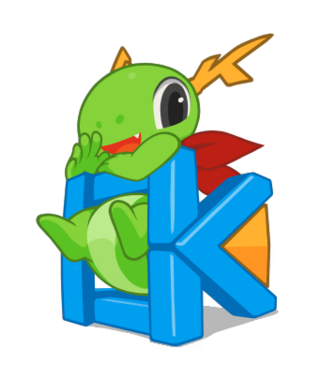
KDE Frameworks is a collection of libraries and software frameworks readily available to any Qt-based software stacks or applications on multiple operating systems. Featuring frequently needed functionality solutions like hardware integration, file format support, additional graphical control elements, plotting functions, and spell checking, the collection serves as the technological foundation for KDE Plasma and KDE Gear. It is distributed under the GNU Lesser General Public License (LGPL).











